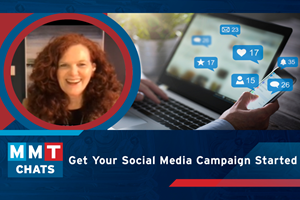Marketing Basics for Moldmakers
Address these three marketing basics to quickly get up to speed on creating an online presence that improves your shop’s visibility.
When a prospective customer wants to gather up-to-date information about a tooling vendor, it typically visits the shop’s website. However, all too often that proves less than helpful.
Unfortunately, many moldmakers do not have an Internet presence at all, and shops that do have a website often lack updated or adequate capabilities information. To quickly get up to speed on creating an online presence that improves your shop’s visibility, address these three marketing basics:
1. Website
You need your own website. You also need to commit to keeping your website updated, as the algorithms of the search engines treat regularly updated websites more favorably. Monthly or bi-monthly updates are considered a minimum. Your website should include:
Landing pages and key word optimization. When developing a website, a good service provider will ask about key words and establish separate pages accordingly. For example, if you make tooling for both prototype and production molds, create two distinct landing pages. Similarly, if you offer CNC machining and mold repair, develop individual landing pages. As a result, search engines won’t be confused about the true substance of the pages.
Photographs and videos. The Internet is a visual format. The old saying “A picture is worth a thousand words” applies to a website, and a good video can be worth 5,000 words. Share short videos and plenty of photographs of your equipment in action as well as the tooling you make. (Obtain customer approvals first.)
Testimonials. Secure one or two customers to provide a quote or relate a success story. Make the story even more dynamic by capturing it with a smartphone as a two-minute video.
Contact information. Your website should give customers easy access to appropriate contact information. Avoid using small print, placement at the bottom of a page and access by an obscure link. Internet usage has sped up communication, so answer your emails promptly. Do not be the person who returns calls or messages days later. Prospects will have moved on by then.
2. Local Listings
Everyone has Googled something. For example, say you search for information about running shoes. As part of the search results, companies in your local area that sell running shoes will be listed. You want your company to pop up in local listings when appropriate, so look into Google, Yahoo, Yelp and Yellow Pages to get your address, phone number and website listed. It’s free, unless you choose to pay for a premium listing.
3. Social Media
Social media allows for very fast message transmission. This means frequent updates, so decide whether you want to make that commitment. Regardless, having an account with basic company information on LinkedIn and Facebook is worth it. Remember to invite your customers regularly to connect with you via a social media site.
A big advantage of social media is its ability to broadcast a need or availability very quickly. For example, if you notice in the scheduler of your ERP system that you will be slower in two weeks, use that time to spread a message that you have excess capacity available, in case anyone needs small jobs completed and is at or over capacity.
Social media is also great for spreading current news. Local news aggregates, such as the Patch, work well, too. For example, if you are buying a new machine or expanding your building, let everyone know. If you are a member of any trade associations, be sure to submit a press release so they can spread your news as well.
Whether business-to-business or business-to-consumer, a basic Internet presence is a requirement to remaining competitive today.
Related Content
MMT Chats: Simple Steps to Get Your Social Media Campaign Started
MoldMaking Technology Editorial Director Christina Fuges catches up with Gail Now’s Chief Curiosity Officer Gail Robertson. We talk about the importance of using the curiosity tool to tell your stories as part of a marketing strategy that includes social media. This episode is brought to you by ISCAR with New Ideas for Machining Intelligently.
Read MoreMMT Chats: Mold Builder Shares “Raw and Real” Social Media Strategy
MoldMaking Technology Editorial Director Christina Fuges sits down with Murphy Forsyth, GM – Injection Molding and Director Of Marketing for Zero Tolerance LLC in Clinton Township, MI.
Read MoreThe Role of Social Media in Manufacturing
Charles Daniels CFO of Wepco Plastics shares insights on the role of social media in manufacturing, how to improve the “business” side of a small mold shop and continually developing culture.
Read MoreEditorial Guidelines: Editorial Advisory Board
The Editorial Advisory Board of MoldMaking Technology is made up of authorities with expertise within their respective business, industry, technology and profession. Their role is to advise on timely issues, trends, advances in the field, offer editorial thought and direction, review and comment on specific articles and generally act as a sounding board and a conscience for the publication.
Read MoreRead Next
Are You a Moldmaker Considering 3D Printing? Consider the 3D Printing Workshop at NPE2024
Presentations will cover 3D printing for mold tooling, material innovation, product development, bridge production and full-scale, high-volume additive manufacturing.
Read MoreHow to Use Strategic Planning Tools, Data to Manage the Human Side of Business
Q&A with Marion Wells, MMT EAB member and founder of Human Asset Management.
Read MoreReasons to Use Fiber Lasers for Mold Cleaning
Fiber lasers offer a simplicity, speed, control and portability, minimizing mold cleaning risks.
Read More





















